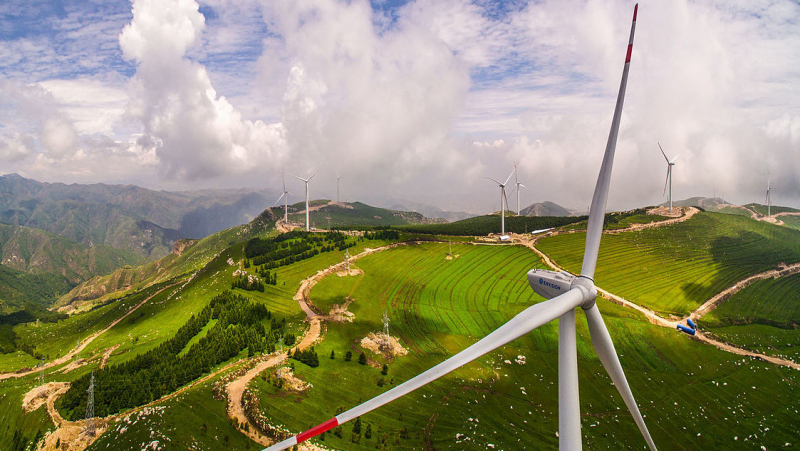265 Civil society groups call on Chinese actors to ensure that Covid-19 financial relief does not bail out harmful projects

On 29th April, BankTrack joined 265 civil society groups around the world in calling upon the Chinese government and state actors, including banks, to ensure that Covid-19 related financial relief for struggling Belt and Road Projects flows only to high quality overseas investments that meet stringent criteria aimed at protecting people and safeguarding the environment. Addresses included Industrial and Commercial Bank of China (ICBC), China Development Bank, Export-Import Bank of China, Bank of China, China Construction Bank and Agricultural Bank of China, alongside the China Banking and Insurance Regulatory Commission and various government ministries.
In February 2020, China’s Ministry of Commerce and the China Development Bank (CDB) jointly issued a “Notice on the COVID-19 Pandemic Situation and Development of Financial Services in Supporting the High Quality Joint-Construction of the Belt and Road”. (1) This notice created a mechanism for directing finance to Belt and Road projects that have been impacted by the Covid-19 pandemic. It instructs local commerce departments and centrally state-owned enterprises to collect information on overseas projects impacted by the outbreak and pass this information on to the China Development Bank, which will consider providing financial relief to get projects back on track.
Crucially, the notice states that projects that are “high quality”, “legally compliant” and have “controllable risks” can qualify to receive Covid-19 related financial relief.
In this statement, civil society groups issued their concern that certain projects, 60 of which were identified in the statement, should not be eligible for Covid-19 financial support due to pre-existing risks or controversies which were apparent long before the onset of the pandemic. If pursued, these projects would harm and or destroy forest, marine, desert, river, or other increasingly fragile and remaining intact ecosystems, and the people who depend upon them. These projects directly impact local environments, communities, and livelihoods.
The statement also sets out 10 specific principles that if present could help to ensure that projects are “high quality”. This includes ensuring credible, robust environmental impact assessments, obtaining free, prior informed consent from affected people, committing not to impact on key biodiversity areas, and ensuring alignment with international norms and best practices and China’s green finance policies, among others.
Furthermore, the notice of the Ministry of Commerce and the China Development Bank highlights the special role that the CDB may play in providing Covid-19 related financial support. However, a large range of Chinese financial institutions are actively supporting overseas projects and the development of the Belt and Road. Therefore, the statement puts forward that the criteria for identifying “high quality” projects and the list of high-risk projects is relevant to Chinese financial sector actors more broadly. Chinese state actors and financial institutions can play an important role in realising China’s commitment to build the “Green Belt and Road”.
Included in the list of projects which should not be eligible for Covid-19 financial support are a number of projects listed as “Dodgy Deals” on the BankTrack website:
-
Amazarsky Saw and Paper Mill and Loguhe-Pokrovka Border Crossing, Russia: the APSM will destroy biodiversity hotspots, lead to deforestation and devastation of resources, and destroy important aquatic ecosystems. These are ecosystems on which the livelihoods of the local population depend upon, including the Evenki Indigenous Peoples.
-
Batang Toru Hydropower Project, Indonesia: the dam will risk the extinction of the most endangered great ape species in the world, the Tapanuli orangutans, whilst also having serious impacts on fisheries and river ecology. Despite the project being billed as a ‘green’ project, the dam will emit significant quantities of greenhouse gases, contributing to climate change.
-
East African Crude Oil Pipeline, Uganda and Tanzania: The Pipeline poses significant social threats, including large scale land acquisition and resettlement, and negative impacts on the livelihoods of those who rely on agriculture and fishing. In addition, the pipeline poses far reaching and extensive environmental threats to protected wildlife habitats, and high risks of freshwater pollution and degradation. The amount of oil being carried by the pipeline would result in CO2 emissions significantly greater than the combined emissions of Uganda and Tanzania.
-
Lamu Coal Plant, Kenya: Lamu’s old town is a UNESCO World Heritage site, and the coal power project poses serious risks to Lamu’s delicate marine environment, which in turn would harm fishing and tourism. Furthermore, the coal power plant alone would exceed all of Kenya’s existing emissions from fossil fuel plants and would be one of the worst emitters of GHG on the entire African continent.
-
Rio Blanco Copper Mine, Peru: the Rio Blanco project has been the site of a number of violent incidents, including the killing of four community leaders and three company personnel, and evidence that people were detained and tortured by the mine’s security forces after protests at the project site.
The statement emphasises that, as the world continues to reel from the ongoing impacts of climate change, and now Covid-19, it is more important than ever to find common ground in achieving a mutually beneficial, sustainable future together. Global actors seeking to stabilize and revitalise the economy must ensure that Covid-19 related financial relief is allocated to projects and investments that are fully supported by and benefit local communities, align with international standards and best practice, and preserve our world’s increasingly fragile ecosystems.
The statement is available here in Chinese and English.
